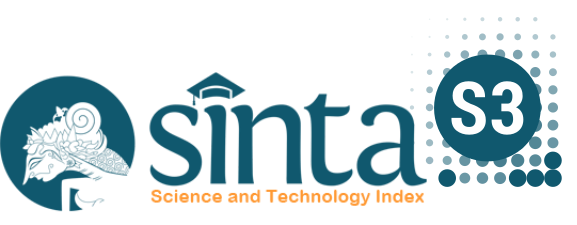Improving Midwives Competence in Postpartum Depression Screening through EPDS Training
DOI:
https://doi.org/10.31101/jhtam.4080Abstract views 466 times
Keywords:
Competency, EPDS, Midwives, Postpartum depression, Training interventionAbstract
Downloads
References
Ayaz, R., Hocaoǧlu, M., Günay, T., Yardlmcl, O. D., Turgut, A., & Karateke, A. (2020). Anxiety and depression symptoms in the same pregnant women before and during the COVID-19 pandemic. Journal of Perinatal Medicine, 48(9), 965–970. https://doi.org/10.1515/jpm-2020-0380
Demissie, & Bitew. (2021). Mental health effect of COVID-19 pandemic among women who are pregnant and/or lactating: A systematic review and meta-analysis. SAGE Open Medicine, 9, 205031212110261. https://doi.org/10.1177/20503121211026195
Farrell, T., Reagu, S., Mohan, S., Elmidany, R., Qaddoura, F., Ahmed, E. E., Corbett, G., Lindow, S., Abuyaqoub, S. M., & Alabdulla, M. A. (2020). The impact of the COVID-19 pandemic on the perinatal mental health of women. Journal of Perinatal Medicine, 48(9), 971–976. https://doi.org/10.1515/jpm-2020-0415
Grimes, H. A., Forster, D. A., & Newton, M. S. (2014). Sources of information used by women during pregnancy to meet their information needs. Midwifery, 30(1), e26–e33. https://doi.org/10.1016/j.midw.2013.10.007
Hayoun, B., Sultan, Rozeznic, Guo, Carvalho, Orbach-Zinger, & Weiniger. (2023). Association of inpatient postpartum quality of recovery with postpartum depression: A prospective observational study. Journal of Clinical Anesthesia, 9(1), 111-263. https://doi.org/10.1016/j.jclinane.2023.111263
Jiang, L., Wang, Z. Z., Qiu, L. R., Wan, G. Bin, Lin, Y., & Wei, Z. (2014). Psychological intervention for postpartum depression. Journal of Huazhong University of Science and Technology - Medical Science, 34(3), 437–442. https://doi.org/10.1007/s11596-014-1297-x
Letourneau, Dennis, Benzies, Duffett-Leger, Stewart, & Tryphonopoulos. (2012). Postpartum depression is a family affair: Addressing the impact on mothers, fathers, and children. Issues in Mental Health Nursing, 33(5), 445–457. https://doi.org/10.3109/01612840.2012.673054
Lopez-Morales, H., del Valle, M. V., Canet-Juric, L., Andres, M. L., Galli, J. I., Poo, F., & Urquijo, S. (2021). Mental health of pregnant women during the COVID-19 pandemic: A longitudinal study. Psychiatry Research, 295. https://doi.org/10.1016/j.psychres.2020.113567
Matsumura, Hamazaki, Tsuchida, Kasamatsu, & Inadera. (2019). Education level and risk of postpartum depression: results from the Japan Environment and Children’s Study (JECS). Japan Environment and Children’s study (JECS) Group. (2019). BMC Psychiatry, 19(1), 419. https://doi.org/10.1186/s12888-019-2401-3
Moraes, G. P. de A., Lorenzo, L., Pontes, G. A. R., Montenegro, M. C., & Cantilino, A. (2017). Triagem e diagnóstico de depressão pós-parto: Quando e como? Trends in Psychiatry and Psychotherapy, 39(1), 54–61. https://doi.org/10.1590/2237-6089-2016-0034
Muhwava, L. S., Murphy, K., Zarowsky, C., & Naomi Levitt. (2020). Perspectives on the psychological and emotional burden of having gestational diabetes amongst low-income women in. BMC Women’s Health, 20–231, 1–12.
Müller, M., Matthies, L. M., Goetz, M., Abele, H., Brucker, S. Y., Bauer, A., Graf, J., Zipfel, S., Hasemann, L., Wallwiener, M., & Wallwiener, S. (2020). Effectiveness and cost-effectiveness of an electronic mindfulness-based intervention (eMBI) on maternal mental health during pregnancy: the mindmom study protocol for a randomized controlled clinical trial. Trials, 21(1), 1–11. https://doi.org/10.1186/s13063-020-04873-3
Özkaraman, A., Dügüm, Ö., Yılmaz, H. Ö., & Yeşilbalkan, Ö. U. (2018). Aromatherapy: The effect of lavender on anxiety and sleep quality in patients treated with chemotherapy. Clinical Journal of Oncology Nursing, 22(2), 203–210. https://doi.org/10.1188/18.CJON.203-210
Petrozzi, & Gagliardi. (2016). Breastfeeding self-efficacy scale: Validation of the Italian version and correlation with breast-feeding at 3 months. Journal of Pediatric Gastroenterology and Nutrition, 62(1), 137–139. doi: 10.1097/MPG.0000000000000902.
Rauf, L., Hiola, A., Angriani, D., & Gorontalo, M. (2024). Early Detection of Postpartum Depression: The Use of the Edinburgh Postnatal Depression Scale (EPDS). Jurnal Voice of Midwifery, 14(1), 1. https://doi.org/https://doi.org/10.35906/vom.v14i1.271
Ross, L. E., Murray, B. J., & Steiner, M. (2005). Sleep and perinatal mood disorders: A critical review. In Journal of Psychiatry and Neuroscience (Vol. 30, Issue 4, pp. 247–256).
Shorey, S., Law, E., Thilagamangai, Mathews, J., Lim, S. H., Shi, L., Chua, J. S., Du, R., Chan, Y. H., Tan, T. C., Chee, C., & Chong, Y. S. (2023). Evaluating the Effectiveness of the Supportive Parenting App on Parental Outcomes: Randomized Controlled Trial. Journal of Medical Internet Research, 25, 1–16. https://doi.org/10.2196/41859
WHO. (2023). Depressive disorder (depression). https://www.who.int/news-room/fact-sheets/detail/depression
Downloads
Published
How to Cite
Issue
Section
License
Copyright (c) 2025 Indah Wahyuningsih, Indah Christiana, Erlin Novitasari

This work is licensed under a Creative Commons Attribution-ShareAlike 4.0 International License.
Authors who publish with Journal of Health Technology Assessment in Midwifery agree to the following terms:
- Authors retain copyright and grant the journal right of first publication with the work simultaneously licensed under a Creative Commons Attribution License (CC BY-SA 4.0) that allows others to share the work with an acknowledgment of the work's authorship and initial publication in this journal.
- Authors are able to enter into separate, additional contractual arrangements for the non-exclusive distribution of the journal's published version of the work (e.g., post it to an institutional repository or publish it in a book), with an acknowledgment of its initial publication in this journal.
- Authors are permitted and encouraged to post their work online (e.g., in institutional repositories or on their website) prior to and during the submission process, as it can lead to productive exchanges, as well as earlier and greater citation of published work.

Journal of Health Technology Assessment in Midwifery is licensed under a Creative Commons Attribution-ShareAlike 4.0 International License..













